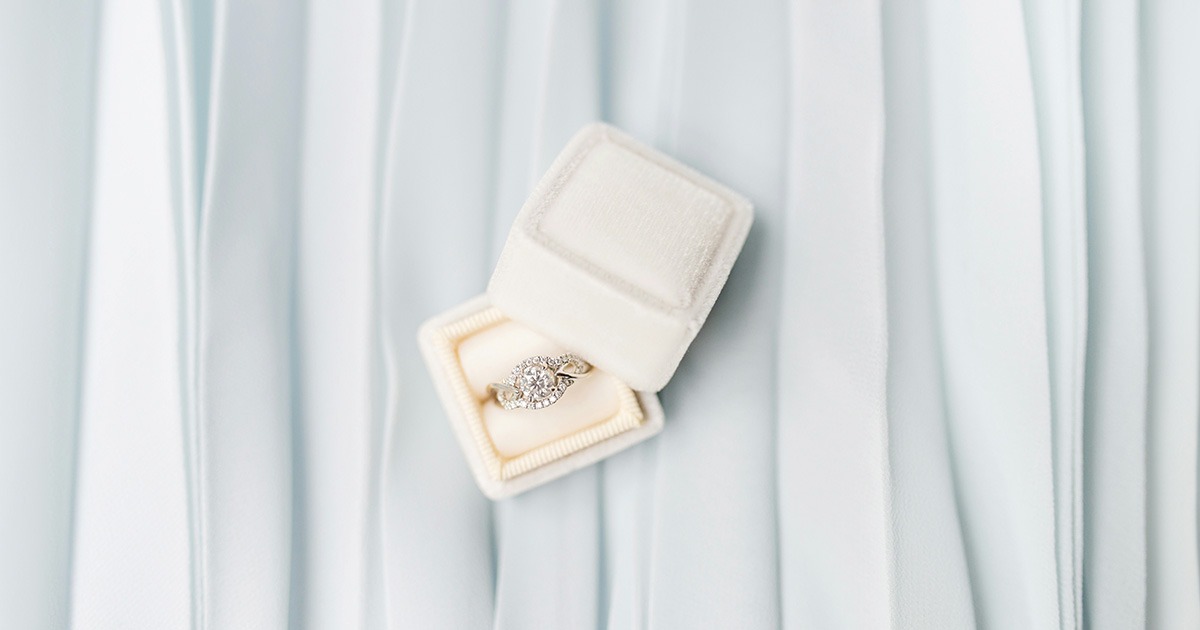The Ideal Budget and Criteria for an Engagement Ring
I may not completely understand why the ring is such a big deal, but it’s clear that people often talk more about the engagement ring than the wedding itself. Usually, people say you should spend three months’ salary on the ring, but is that really needed? It depends on your money situation and what your partner likes.

When picking a ring, focus on the 4Cs: how it’s cut, its color, how clear it is, and how many carats it has. Some people stick to the idea of spending three months’ pay. Think about it: If someone makes $100,000 a year, do they really have to spend $20,000 to $25,000 on a ring? Will a partner really say no to a ring just because it’s not fancy? Like other money choices, this one is very personal. But, what kind of stress does this put on the person who is proposing?
The Three Months’ Salary Guidelines
Let’s get into the rule of thumb. Conventional wisdom recommends investing three months’ pay in an engagement ring. A $25,000 ring may appear acceptable to somebody earning six figures, but for someone earning $3,000 per month, spending $9,000 for a ring may be difficult.
Individuals earning $3,000 are unlikely to generate significant savings, particularly if they live separately. That $9,000 might reflect years of diligent savings. Are they supposed to reset their financial progress just to demonstrate their commitment?
Separating Truth from Lies
The idea that “three months’ salary should be spent on a ring to make it last forever” is just a sales tactic used by jewelry stores to get people to spend a lot of money. It doesn’t make sense to me.
This idea suggests that a ring could be as expensive as a car, which seems crazy. Don’t let flashy ads trick you into spending too much and getting into money trouble. Look at your budget and choose what you can afford.
Otherwise, you risk turning the wonderful event of reuniting with your sweetheart into a financially draining experience that will plague you for years. Regret may arise, and the financial pressure may strain your relationship.
The Significance of Life Stage
Allocating three months’ wages may appeal to young couples embarking on a journey together while sharing financial responsibilities. When my wife and I got engaged, I had just started my profession, and three times my monthly income was not a significant sum.
Moving in together allowed us to drastically reduce our living expenditures, and at the time, I had few financial obligations. As a result, we quickly acquired the finances required for the ring without incurring large debt, decreasing the repayment period.
However, as people age, the standard for three months’ earnings usually climbs. As a result, it is critical to consider whether you want to invest more in the engagement ring than the total wedding budget. Would you rather use your savings to improve your quality of life than spend them on jewelry? Furthermore, if financing the ring becomes required, keep in mind the significant additional costs that will be incurred over time due to interest rates.
Consider Your Loved Ones
While not everyone is concerned with costly items, an engagement ring usually makes people think about the price. This consideration isn’t only for the couple planning to get engaged. It’s crucial to keep in mind that your future spouse will be sharing their ring with their friends for many years.
How will their friends react to the ring? Could comments about the size of the diamond hurt your fiancé’s feelings? On the other hand, a very expensive ring might make your partner’s friends jealous and upset, which could cause problems in their friendships.
Some might say that people with these kinds of friends should just stop being friends with them. But these friendships exist for many reasons, and ending them could cause sadness.
Don’t Overlook Family Expectations
Your fiancé’s family may also provide feedback on the ring. While I doubt they would shun your partner because of the diamond’s size or price, choosing a ring that meets familial standards helps create goodwill.
Picking a ring that seems too small might make people doubt your dedication, while picking a very expensive one might make them wonder about how you handle money. Finding the right balance might seem hard, but there’s still a lot of space to think about these things carefully.
What to Consider When Buying a Ring
My wife mentioned a colleague’s story about a store worker advising a lesser diamond for their fiancé’s small hands. Although funny, this emphasizes the idea that a diamond’s size should correspond to the wearer’s hand dimensions.
If you want a simple yet elegant ring, there are plenty of options available that have brilliant, albeit smaller, diamonds. Many people are unaware that a diamond’s fascination extends beyond its size; variables such as the well-known 4Cs—cut, color, clarity, and carat weight—have a considerable impact on its appeal. Furthermore, certified diamonds have validation from recognized organizations such as the Gemological Institute of America, which ensures quality.
What Do You Value?
Having been through this experience myself, I understand the temptation of high-end jewelry. However, determining if the price difference genuinely corresponds to your partner’s preferences is critical.
While enthusiasts may notice disparities right away, evaluate whether such intricacies are important to your spouse. Furthermore, keep in mind that money is still fungible; any funds left over from the ring can be used to fund common goals in your growing relationship.
If all goes well, your spouse will support you in all your ambitions. Thus, allocating surplus funds to activities such as arranging your dream wedding, making a down payment on a house, or saving for future ventures may result in more fulfillment. While diamonds last, it is critical to distinguish marketing ploys from real sentiment.
Consider Your Fiancé’s Style
You should also consider your partner’s preferences. Do they want a large rock, or would they prefer a smaller but higher-quality diamond? While a large stone may ooze majesty, a smaller one may provide more comfort for everyday wear.
Make the Most of Your Money
Your budget for the engagement ring should match what you can afford, but it’s also important to spend it wisely. For me, using connections allowed me to buy diamonds at wholesale prices, which saved a lot of money.
Also, a lot of research showed that diamond rings often have very high prices, sometimes marked up by 600% to 800%. Doing your homework can save you money and give you important tips on picking diamonds that you can share with friends who are also looking to buy.
To Sum Up
Before deciding on a ring, think about what matters most to you and your partner. Some might like big, showy displays, while others see them as just meaningless rituals. Ask yourself if following these traditions really helps you or just uses up your resources.
If you’re choosing a ring for its meaning, think hard about spending a lot of money on it. Maybe saving that money would be smarter, helping you reach your shared goals and making your relationship stronger over time.






